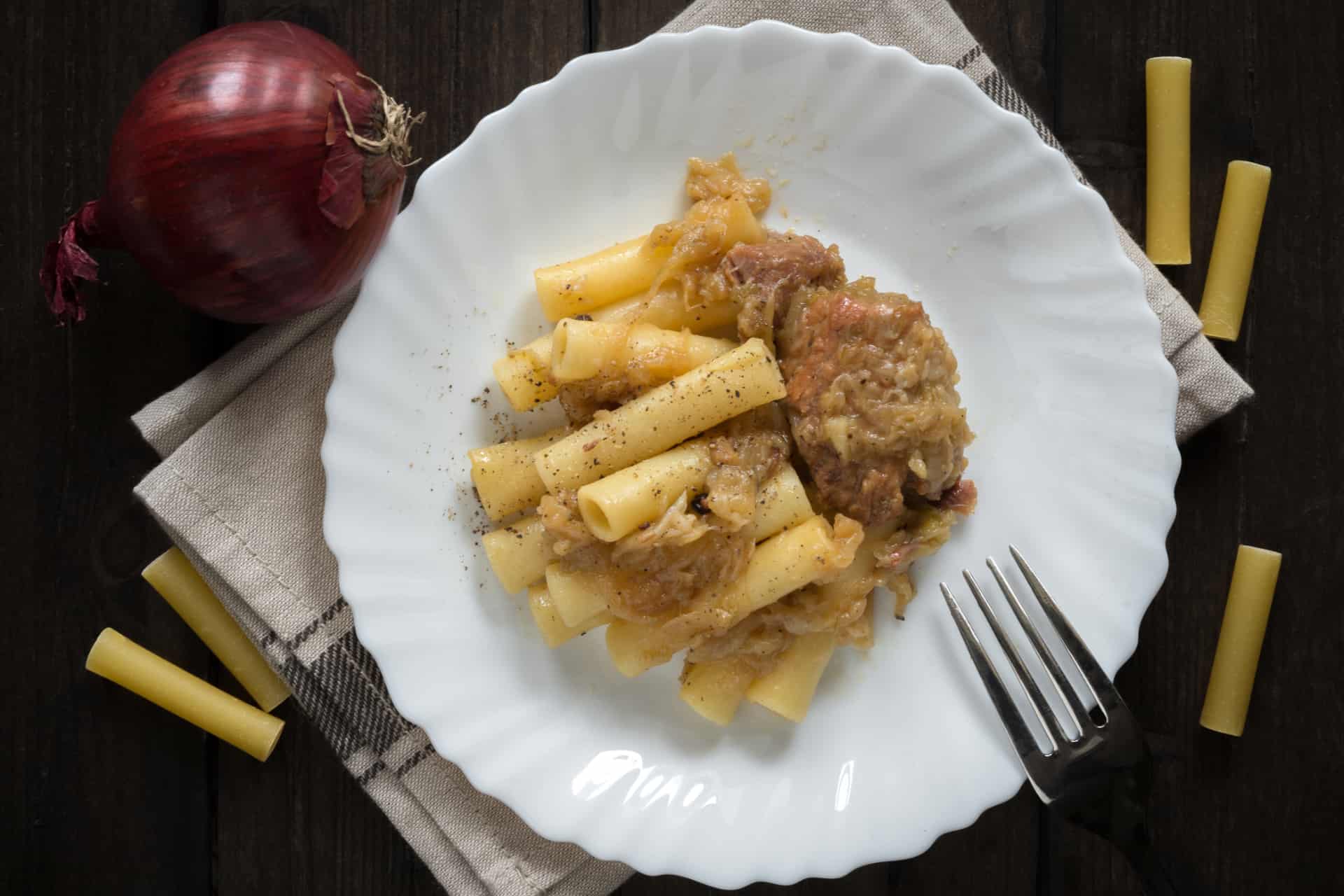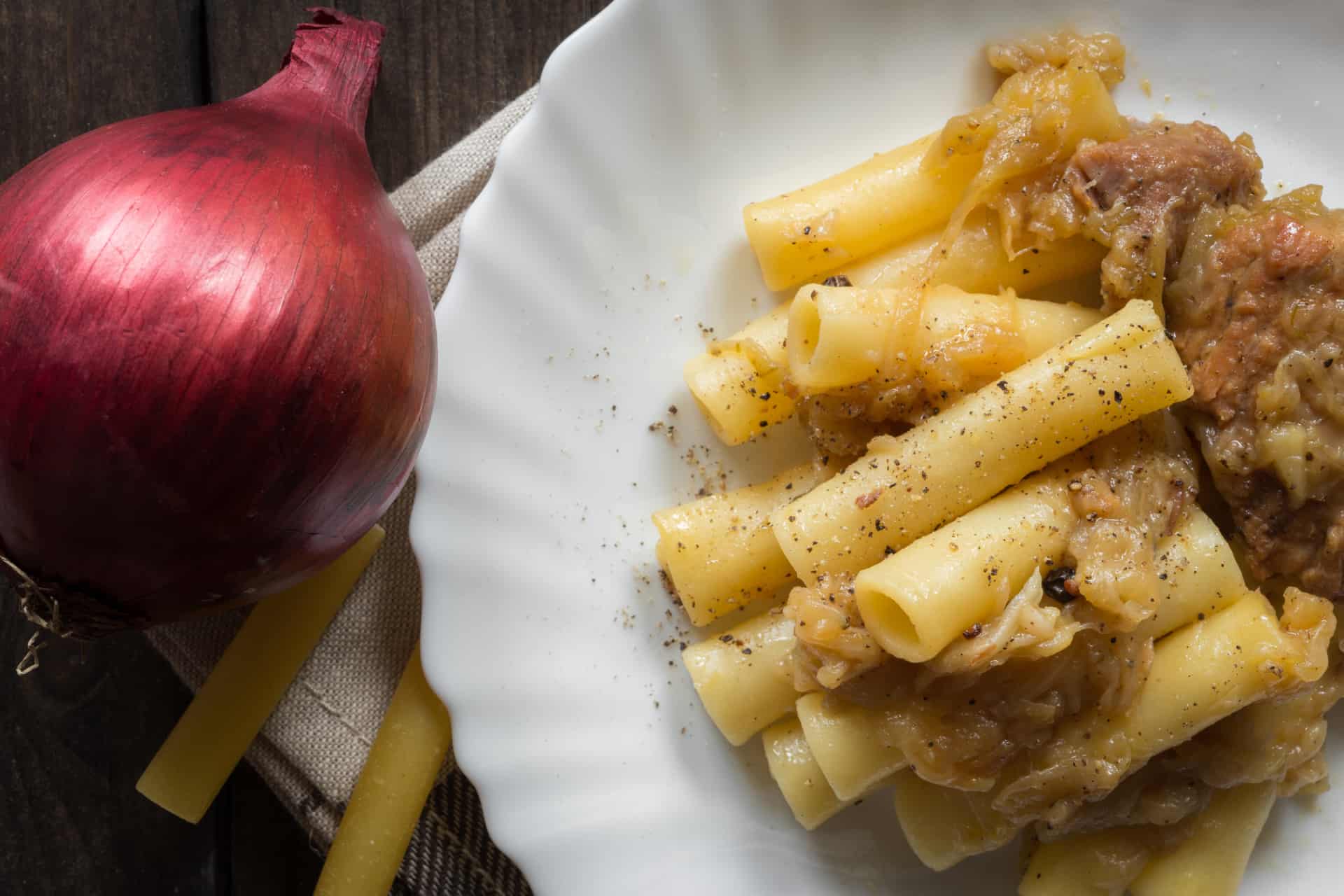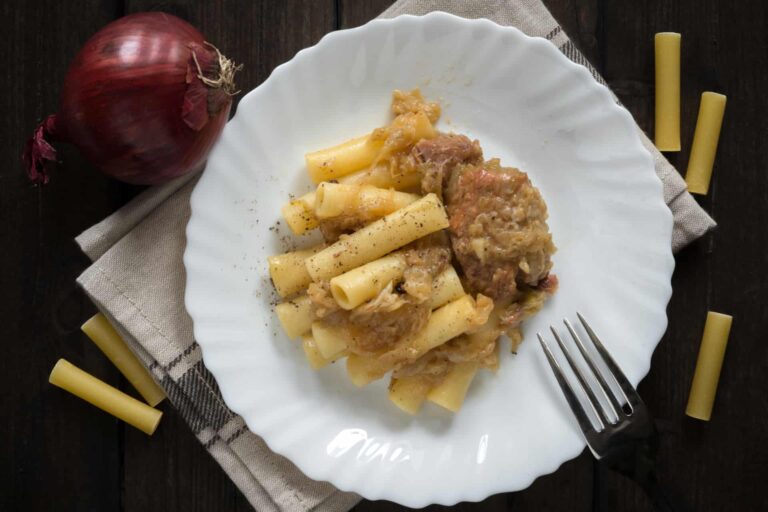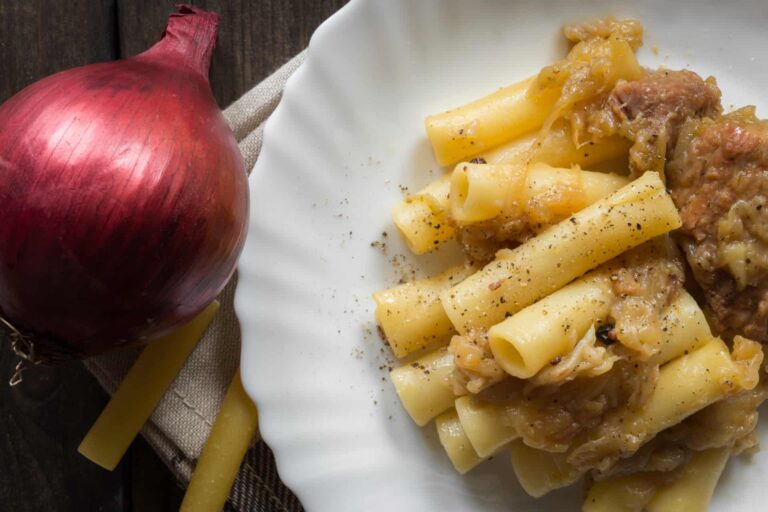An irresistible sauce

Imagine a thick and succulent onion sauce in which a piece of beef has been cooked for hours. Imagine, then, to use the irresistible sauce to season the pasta almost to form, with the meat, a single dish or to savor it simply like this, dipping like a shoe a nice piece of bread.
Well, this is the Neapolitan genovese, a white sauce, that is, without tomato, made with beef and onions. Cooking must be strictly slow, 2 or 3 hours and even more, until the meat and onions become a thick and appetizing cream.
The recipe. Pleasure in simplicity
The recipe is pretty simple. Prepared a base of celery and carrots, brown it with beef. Once the browning is completed, blend everything with wine, better white. Finally, add the onions, possibly the copper of Montoro, sweet and aromatic. It will then be the slow cooking over low heat to do the magic and give us back a sauce with an irresistible smell and taste. Excellent for seasoning pasta but just as good to eat as it is, soaking the bread.
Speaking of pasta, tradition recommends ziti, a type of long pasta to be broken by hand, formerly used in engagement lunches where the girlfriend was officially presented, in Neapolitan ” zita“.
In short, the Genoese sauce represents, with the Neapolitan ragù that instead involves the use of tomato and pork, an indispensable treasure of Neapolitan cuisine. A taste of tradition to try at any cost and then to tell friends keeping your mouth watering.
I leave you, however, a tip for when you order it at the restaurant. Ask in advance if it will be served with a piece of meat. If the answer is no, forget it. Without meat, in my opinion, it is only half enjoyed!
Why is a Neapolitan recipe called Genovese?
You may have wondered, as I did, why a Neapolitan recipe is called Genoese. What if it wasn’t really Neapolitan? Although the origin of the name is not certain, it is irrefutable that the Genoese is authentically Neapolitan. There are, however, points of contact with the cuisine of the Ligurian capital. In fact, a typical dish of Ligurian cuisine, “u’Tuccu zenéize“, consists of cooking large pieces of meat together with carrot, celery and onion.
Birth of Neapolitan Genovese and Neapolitan Ragù

Apart from this recipe, there are others both in Italy and abroad that involve the use of meat and onions such as Venetian liver or Hungarian goulash, the origin of the name probably dates back to the eighteenth century. At the time, the names “alla genovese” and “alla napoletana” were used to indicate two very similar meat sauces found in both Neapolitan and Ligurian cuisines. None of the recipes resemble today’s Genovese. Over time the two recipes have evolved independently in the Neapolitan tradition. The name “alla genovese” has been preserved and has consolidated as an alter ego of the other famous Ligurian sauce, pesto alla genovese.
Aragonese roots
Contacts with Genoese cuisine are also identified in the Aragonese period, fifteenth century, when the port of Naples was frequented by Ligurian sailors and cooks who would, in some way, have imported the use of onion in sauces into Campania.
What if it’s Swiss?
A more picturesque legend attributes the invention of the dish to a famous Neapolitan cook of the fifteenth century nicknamed “O Genovese”, hence the name of the dish. However, it seems that the cook was originally from Geneva and had the nickname “‘o Genoves” not for the Ligurian city, but in reference to the term “geneves” Swiss.
Angevin roots
Finally, the oldest and most reliable documented source on the Genoese dates back to 1285 in the “Liber de coquina”, a cookbook, presumably of Neapolitan origin, written in vulgar Latin and found in the National Archives of Paris. In the book there is the recipe of “Tria Ianuensis” (Della Tria Genovese), where “tria” refers to pasta and describes a very slow cooking sauce prepared with onions and meat. This historical evidence suggests that the Genoese could have very ancient origins, dating back to the Late Middle Ages when the Angevins had just settled in Naples.
To learn more
- Casa Pappagallo – Traditional Neapolitan Genoese (video);
- GialloZafferano -GENOVESE: the Sunday dish of the whole Campania (video);
- Cookist – La genovese: history and legends of the famous Neapolitan first course (website);
- Napolipiù – The Genovese Neapolitan dish doc: But why is it called so? (website);



